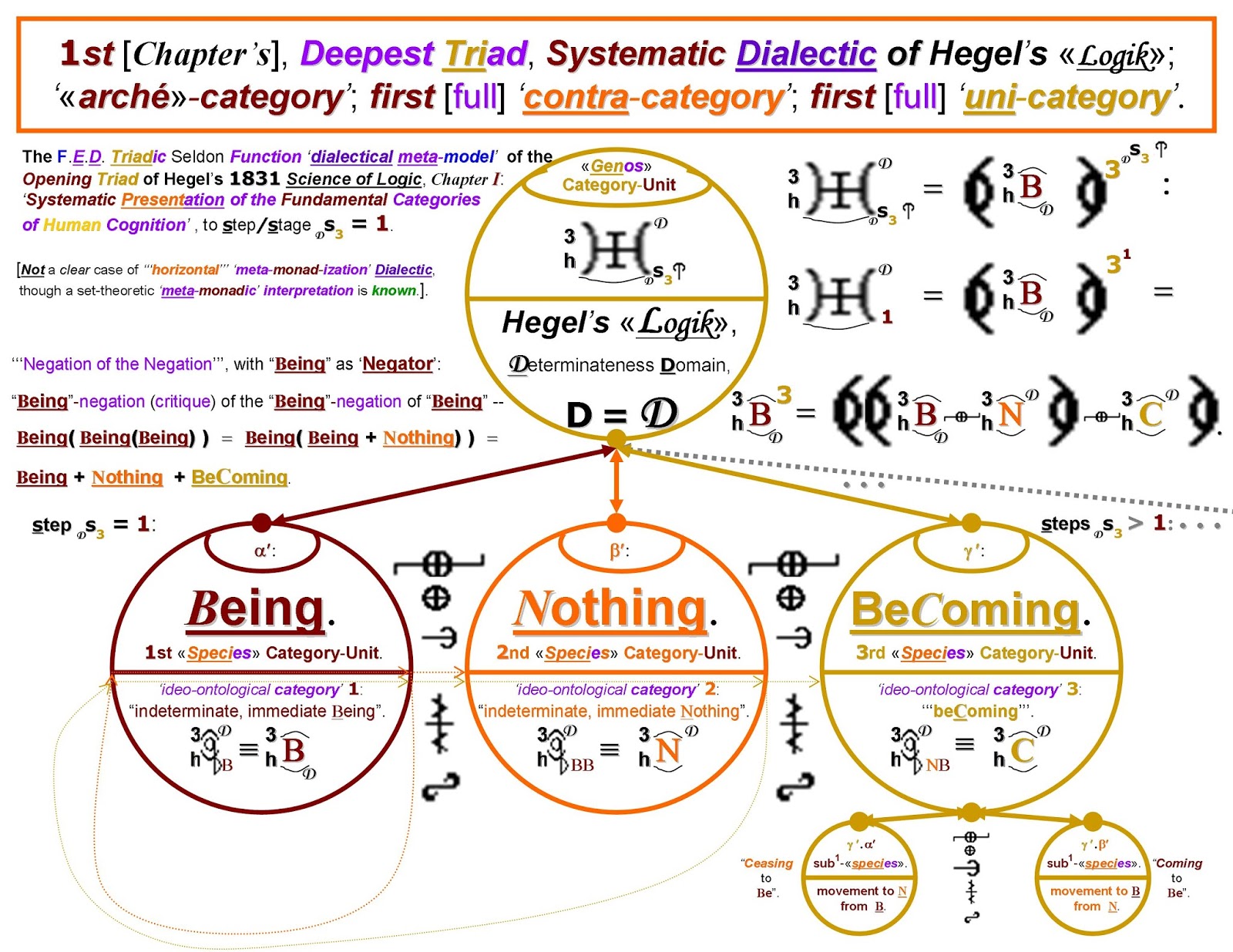

Therefore, it is valid to single out two aspects of the political content of Hegel's philosophy of law: (a) the historically concrete political views developed by Hegel in his Philosophy of Right and (b) the totality of politically meaningful propositions deriving from his application of dialectics to the sphere of politics - which we here call Hegel's dialectics of politics. Hegels different way of thinking has become known as dialectical thinking. This is clearly manifested in the political and legal results of Hegel's employment of a conceptual apparatus and theoretical constructs in the dialectical investigation of the objective spirit. The independent meaning of this domain of research transforms logic and gives it politically significant features despite the conscious Hegelian attitude of "logicizing" politics. It is not a 'method' or a set of principles, like Aristotle's, which can be simply stated and then applied to whatever subject-matter one chooses. What makes dialectical thinking so difficult to explain is that it can only be seen in practice. ( 1) In addition to providing a basis for historically concrete views on political matters, the Hegelian philosophy of law, as an application of dialectics to a specific realm of subject matter in societal, governmental, and political-legal phenomena, contains the logic of that realm of subject matter. Hegel's different way of thinking has become known as dialectical thinking. NMIA is expanding its efforts to provide scholarships for studies in intelligence, to recognize intelligence professionals for outstanding contributions to military intelligence, and to provide public education about military intelligence activities, organizations, and careers.Hegel's teachings on the state, law, and society constitute a philosophy of law and were developed by him as the philosophy of the objective spirit.
#Hegelian dialectic define professional
The National Military Intelligence Association (NMIA) has been the premier professional association for practitioners of military intelligence since its inception in 1974.

citizens who have an interest in intelligence and support the vital role of military intelligence in safeguarding our nation's security. The dialectic is frequently described in terms of a thesis giving rise to its. Members include military and civil service professionals actively engaged in military intelligence careers as well as reserve, former and retired intelligence personnel and U.S. So Hegel uses a dialectical approach to examine the course of human history. NMIA was founded in 1973 at Fort Huachuca, Arizona. The National Military Intelligence Association (NMIA) is a national association of intelligence professionals. Hegel identified dialectic as the tendency of a notion to pass over into its own negation as the result of conflict between its inherent contradictory.

The National Military Intelligence Foundation (NMIF) is “organized to advance public awareness of the role in, and contributions to society, of military intelligence organizations, disciplines, analytical methods, techniques and personnel.” The ability to recognize multiple value frameworks as legitimate in their own terms invariably leads to contradictions.


 0 kommentar(er)
0 kommentar(er)
